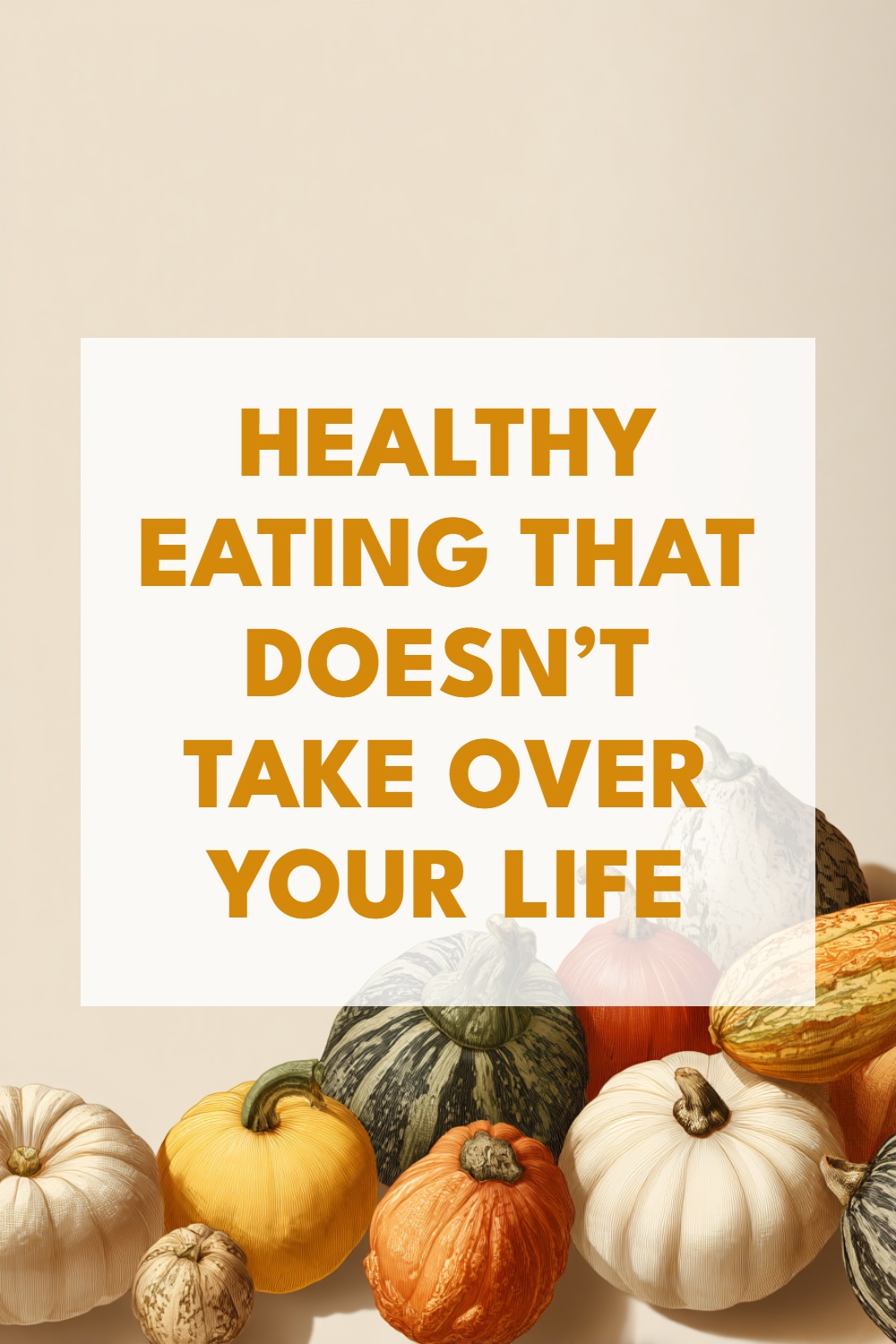It’s not that you don’t want to eat healthier.
It’s that every time you try, it starts strong but eventually falls apart.
Too rigid. Too complicated. Too exhausting.
If healthy eating is going to stick, it has to feel like something you can keep doing even on hard days.
Here are 6 real-life strategies that help make it sustainable.
1. Build a Short List of Go-To Meals
You don’t need a new recipe every night. Or a detailed meal plan for the week.
You need a few meals you can count on – meals that are easy to make, don’t take a ton of ingredients, and leave you feeling satisfied.
These are your defaults for when life is busy or you just don’t want to think.
A few examples:
- Scrambled eggs with toast and frozen spinach
- Chicken wraps with hummus and pre-cut veggies
- Rice bowls with frozen stir-fry mix and tofu or rotisserie chicken
Write them down. Keep the ingredients on hand. When you hit a low-energy day, you won’t have to start from scratch.
2. Work With Your Preferences
You don’t have to eat foods you hate to be healthy.
If you’ve been forcing salads, green juices, or steamed broccoli and it never sticks – stop.
There are other ways to eat better that still respect your tastes.
Start with the foods you do like, and see how you can build meals around those in a more balanced way.
You can also slowly expand your comfort zone. Try a new food once in a while, or a different way of preparing something.
But stop fighting your own taste buds.
Sustainability comes from food you enjoy eating.
3. Focus on the Next Meal, Not the Whole Week
It’s easy to get caught up in the big picture.
Planning has its place, but if you’re feeling overwhelmed or off track, zoom in.
Just ask: what would help me feel a little better at my next meal?
That’s it. One small decision.
Maybe that’s adding a protein source. Drinking a glass of water first. Having fruit instead of skipping lunch.
You don’t need a reset. You just need a next step.

4. Keep Something Easy on Standby
When you’re short on time or energy, it’s not willpower that fails – it’s the lack of an easy fallback.
Make it easier to eat something decent by always keeping a few things in rotation:
- Frozen meals you actually like
- Pre-cooked grains or microwave rice
- Canned beans or tuna
- Pre-washed salad mix
- Nut butter and whole grain bread
If you can pull something together in 5 minutes, you’re far more likely to follow through.
The fewer obstacles between you and a meal, the more sustainable your habits become.
5. Drop the “Good vs. Bad Food” Mentality
This mindset does more harm than good.
Labeling foods as good or bad sets you up for guilt, shame, and all-or-nothing behavior.
You don’t need to eat perfectly. You need to eat in a way that works most of the time.
Room for treats, takeout, and cravings is part of the plan – not a failure.
The more flexible your approach, the easier it is to stick with.
6. Take One Small Action When You Feel Off Track
It’s easy to spiral when things don’t go the way you planned.
You skip breakfast. You eat something that doesn’t sit right. You have an off day.
Then you think: I’ll just start over Monday.
Instead, try this: take one small action that helps you feel more grounded.
Drink a glass of water. Make a balanced snack. Step outside for a few minutes.
You don’t have to fix everything. You just have to take the next small step.
That’s what real consistency looks like.
Final Thoughts
Sustainable healthy eating doesn’t come from overhauling your life.
It comes from doing a little better, more often – with systems and habits that fit into real life.
You don’t need to be perfect. You just need to keep going, in ways that work for you.

